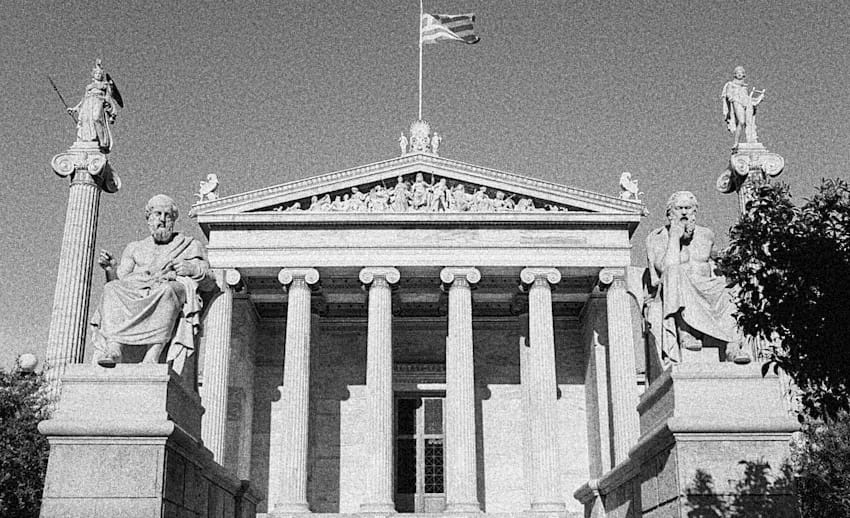
In A Brief History of Cognitive Insecurity, we explored the seismic impact of an obscure policy change in ancient Athens. For a while, the great tragic plays by figures like Sophocles were only performed one time. The history of cognitive insecurity begins, we argued, when Athens removed this prohibition in 386 BC.
But something else happened around the same time. It's a bit mysterious, but extremely important.
Read this story carefully:
"In the year 387, Plato returned to Athens from his trip to southern Italy, where he had sought contact with the Pythagoreans. It is the trip that is also known as the first Sicilian one and that brought the philosopher, who was at that time forty years old, into the acquaintance of the King of Syracuse, Dionysius I, an acquaintance that resulted in the philosopher supposedly later displaying a nervous reservation about everything that reminded him of this name. Back from Syracuse, Plato bought a piece of land in Athens, as far as we know, on the edge of the city, which was dedicated to the demigod Akademos, in order to open a new kind of school on it. Legend and reality may coincide in the fact that this undertaking was immediately an extraordinary success. Even if, based on their own experience, folks today will scarcely believe it, the first of the academies was a place where the word ‘school’ must have been tantamount to enchantment through instruction. Only thus can one understand why Plato’s garden developed into a magnet for gifted young people who dreamed on the one hand of transfiguring knowledge and on the other of public careers, mainly youth from Athens’s middle and upper classes... For the moment, I do not want to say any more about this school’s success than that it is supposed to have been forcibly closed down, after nearly a thousand years, by a Christian emperor from Constantinople—only to be reanimated after an interruption of another thousand years in the Florentine Renaissance. Incidentally, one may draw from these dates the conclusion that in Europe the idea of a community of thinkers is considerably older than the Christian church, which wants to be a community of saints, or at least of the faithful, and is much older than the modern state, which presents itself as a community of beneficiaries of bourgeois legal relations. The only social formation of the European tradition that could make the ancient precedence of the academy a matter of controversy—and in certain respects even the claim to priority regarding questions of the public use of reason—is that of the gathering of people for debate in Athens, which perhaps represents the oldest attempt to give collective intelligence a political form. Accordingly, the quarrel between school wisdom and popular intelligence has also been institutionalized since Plato."
That's from Not Saved: Essays After Heidegger (2016) by Peter Sloterdijk.
Our question is:
What did Plato see in Syracuse?
